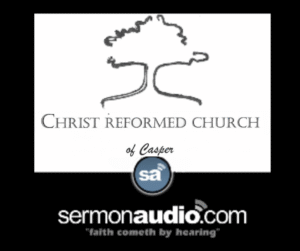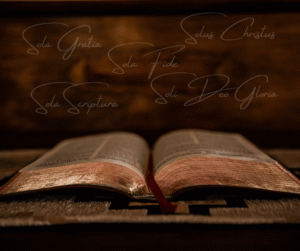LORD’S DAY 20
- What do you believe concerning the “Holy Spirit”?
First, that He is co-eternal God with the Father and the Son.1 Second, that He is also given unto me:2 by true faith makes me a partaker of Christ and all His benefits,3 comforts me,4 and shall abide with me forever.5
[1] Gen. 1:2; Isa. 48:16; 1 Cor. 3:16; 6:19; Acts 5:3–4. [2] Matt. 28:19; 2 Cor. 1:21–22. [3] 1 Pet. 1:2; 1 Cor. 6:17. [4] Acts 9:31. [5] Jn. 14:16; 1 Pet. 4:14; *1 Jn. 4:13; *Rom. 15:13.
One of the texts the Catechism uses to prove the deity of the Spirit is 1 Corinthians 6:19, where Paul asserts that the believer is a temple to the Holy Spirit. But only God has a right to a temple being erected to Him. Therefore the Holy Spirit must be God. But the Spirit is also distinct from God, because the Spirit is received by us from God, according to 1 Cor. 6:19. So we have the doctrine of separate persons in the Trinity, yet persons who are equally God.
But this is no mere doctrinal abstraction. In the passage, Paul is exhorting them against lawlessness (sexual immorality in particular), and to seek to be obedient to God. There are many ins and outs of the whole argument that are beyond our scope here. But in verse 19 he reminds them of something they should know already, that their bodies are temples to the Holy Spirit. The Old Testament temple was the place where God made His presence known in symbolic and covenantal fashion to His people. But the temple was always a shadow of something coming, something more real and permanent than an earthly building, and that came when the Spirit of God was poured out at Pentecost. The presence of God at the old tabernacle was manifested by fire falling from heaven and consuming the sacrifice, a fire that was always kept burning. At Pentecost, the Spirit descended like tongues of fire, showing the new consecration of God’s temple in every believer.
In Charles Wesley’s great hymn, Love Divine, All Loves Excelling, the third verse says,
Come, Almighty, to deliver;
Let us all thy life receive;
Suddenly return, and never,
Nevermore thy temples leave.
The Spirit of God is the life of God’s people, and we have this promise, that Wesley evokes here, that after the Messiah comes, God would rebuild His temple and would never again leave it. Pentecost is the fulfillment of that promise, which is ongoing in the hearts and lives of all those whom God calls to Himself. We are all God’s temples, and God will never leave us.
God is pure and holy and will not allow His temple to be corrupted by idolatry and sin. In the Old Testament that was a fearful threat, and ultimately the reason for the destruction of the nation was just this, their filling of the temple in Jerusalem with idols and immorality (Ezekiel 8). In the New Testament, however, we have the promise of God that He would never again abandon His people, and the sacrifice of Jesus Christ on the cross made good on that promise. Therefore, God will work through His Spirit to cleanse His temple, to work the knowledge of life and the power to overcome sin in our hearts and minds.
That is the meaning of the word “sanctification”. It really has two implications- one is to make morally righteous, and the other is to set apart for holy service. Both come together here, for God, through His Spirit, sets us apart for His holy service, and in doing so makes us righteous. He grants us strength and life to turn from sin, to understand better who He is and what He has made us to be, and in that knowledge to live our lives more and more according to His truth and for His glory. He inhabits us as His temples, and then cleans us up so that we will glorify Him through holy service, as He intended.
Another way of saying this is just what the catechism says, that the Spirit of God makes me a partaker of Christ and all His benefits. He works faith in me, which is to say He creates the capacity within me to understand and believe what Jesus has promised us in His Word. So the Spirit of God communicates to me, in a mystical way, but through the mechanism of faith, the power of Christ’s perfected humanity, so that I become conformed to His image, more and more like Him every day. He was and is the perfect servant of God, always doing all that His Father gave Him to do. Being made like Him means becoming more and more perfect servants of God ourselves.
The work of the Spirit is too often turned into some transcendental, ecstatic experience, being worked up into some emotional, irrational frenzy. This is to separate the work of the Spirit in salvation from the work of the Father and the Son, always a no-no in sound Trinitarian theology, and to deny that the Spirit of God is the Spirit of Truth, as the Scriptures say. The work of salvation, decreed by the Father and achieved by the Son, is applied to us by the Spirit, so that the Trinity as a whole is perfectly united and God’s intention for salvation infallibly comes to pass. We can rest comforted, as the Catechism says, in the assurance that God’s work will be complete, that it is His power that does it and not mine, and joyfully and in faith strive to obey Him in my life and partake of the Spirit’s power through the means He has given us.


Comments are closed, but trackbacks and pingbacks are open.